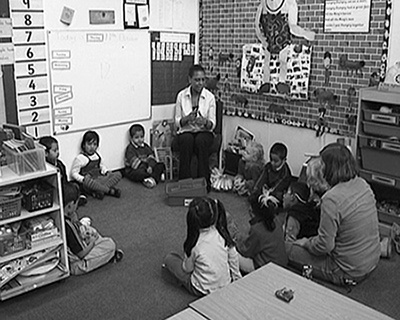2.4 The evolving role of the teacher
The impact of the expanding contribution of teaching assistants on the teacher’s role is generally recognised as being positive. It is worth acknowledging, however, that many teachers have had to make adjustments to their practice in order to work with teaching assistants as team colleagues. Many are able to make this adjustment. We do sometimes, however, hear of teachers who find it hard to work well with another adult in a classroom context. Despite the presence of assistants in primary schools, the focus of much initial teacher training still tends to focus on teachers working in classrooms on their own rather than as collaborators with other adults. Teachers who have only recently achieved qualified teacher status (QTS) may therefore need time to establish how they wish to approach teamwork and, what is essentially, team teaching.
Most, if not all, would agree that teaching assistants bring considerable benefits for teachers and children and to school life more widely. However, while there is talk of teaching assistants reducing teachers’ workloads, the reality is not so straightforward. If teachers are to benefit from the expertise that a well-informed teaching assistant can bring to the partnership, they need to find time to discuss and share ideas on teaching and the curriculum. This is not unlike the role that teachers take on in their supervision of students on teaching practice, where co-planning, co-teaching and feedback form much of the early stages of their training.
We often read that assistants ‘work under the close supervision of teachers’ or that teachers ‘manage’ teaching assistants. This is a time-consuming role, which encroaches greatly on the teaching and non-teaching time of teachers. Furthermore, teachers are legally required to take responsibility for teaching assistants’ day-to-day interactions with children and to oversee their support work. Unlike teachers, assistants cannot be in loco parentis (literally, ‘in the place of a parent’) and so cannot take the responsibility that the law requires of teachers when children are in their care. This means that teaching assistants must be guided and supported by teachers, not only in terms of their curriculum-support practice but also in key areas of work such as health and safety and child protection.
The great majority of teachers recognise the part that this extra work plays in the provision of a future teaching force; moreover, they appreciate that sharing good practice and observing colleagues can help them to develop their own role. Given the limited amount of non-contact time in primary schools, teaching assistants and teachers are required to manage carefully the little time they have available for productive discussion.

